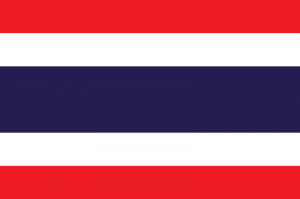 Despite recent political instability along with the impact of the global financial crisis on exporting economies, Thailand’s export and tourism driven economy remains the second largest in Southeast Asia after Indonesia and its one of the fastest growing economies in the world – meaning the Thailand recruitment market is currently facing talent shortages that is also being exacerbated by a Thai brain drain and an inability of Thai universities to produce enough high quality talent.
Despite recent political instability along with the impact of the global financial crisis on exporting economies, Thailand’s export and tourism driven economy remains the second largest in Southeast Asia after Indonesia and its one of the fastest growing economies in the world – meaning the Thailand recruitment market is currently facing talent shortages that is also being exacerbated by a Thai brain drain and an inability of Thai universities to produce enough high quality talent.
The Thailand Diaspora and Thai Returnees
The Thai Diaspora is hard to quantify and many members may actually be ethnically Chinese but it appears that the largest concentration of Thais outside of Thailand live in the United States and number about 300,000 strong. In fact, Los Angeles has a Thai Town that is the largest concentration of Thais outside of Thailand. Other large communities of Thai Diaspora are found in Australia followed by the United Kingdom, Hong Kong, Singapore, Taiwan, Japan and various western European countries.
To encourage more Thai returnees and especially those with a science and technology background to return to work in Thailand, the National Science and Technology Development Agency (NSTDA) set up the Reverse Brain Drain project in January 1997. However and like many government initiatives set up in an attempt to reverse a brain drain, the Reverse Brain Drain project has not had much success in encouraging large numbers of overseas Thai professionals to return to Thailand to work.
Ironically and as Thai professionals leave to work or study abroad, low skilled labor from neighboring countries, especially Myanmar, is flooding into the country. For the most part, this brain gain has not been the right kind of labor to help the Thailand recruitment market.
The Thailand Recruitment Market
Despite increased competition from Vietnam and Malaysia, Thailand remains an important center for the global electronics industry plus it’s a major automobile manufacturing hub for the ASEAN market and an important center for the garment industry. In addition, Thailand is also a major global tourism destination and a hub for regional operating headquarters for foreign MNCs operating in Southeast Asia.
And while political unrest along with the 2011 floods has impacted foreign investment, the Thailand recruitment market is still facing shortages of high quality talent in a number of key areas – including sales and marketing, human resources and general management. These talent shortages are caused in part by the inability Thailand’s universities to produce enough high quality talent (especially professionals who can speak good English) and is exacerbated by the country’s brain drain. Hence, the Thailand recruitment market in recent years has been forced to once again turn to foreign expatriates to fill key or hard to fill professional or technical positions.
Working in Thailand
For foreign expatriates wanting to work in Thailand, obtaining a work permit will most likely depend upon the employer’s level of capitalization and what kind of investment incentives the employer is receiving. For the foreign expatriate, obtaining a work permit for Thailand will begin with obtaining a non-immigrant visa and then applying for a work permit – which can take a considerable amount of time process. In addition, would-be foreign expatriates in Thailand should be aware that Thai visa laws have been known to suddenly change without warning. Hence, foreign expatriates and their employers should consult with a law firm specialized in obtaining Thai work permits, refer to the Thailand Immigration Bureau and various online Thailand expatriate forums for the latest news or trends about Thai visas in general.
As for Thailand taxes, foreign expatriates working in Thailand who are employees of a regional operating headquarters can pay a flat income tax rate of 15% for up to 4 years. Otherwise, Thailand residents and nonresidents alike are taxed on their Thailand-source income with residents taxed on their foreign source income only if they bring this income into Thailand in the year it is derived. Thailand income tax rates are also progressive and range from 0% to 37%. For further and more updated information about Thailand tax rates or Thailand’s taxes in general, visit taxrates.cc, KPMG’s Taxation of International Executives page for Thailand or the website of the Thailand Revenue Department.
Finally, foreign expatriates should be aware that successfully living and working in Thailand will require considerable patience and fortitude on the part of the foreign expatriate as the Thai work culture, work ethic and sense of time tends to differ markedly from that of other Asian and especially Western countries.
Thailand Recruitment and Jobs Resources
For additional Thailand recruitment resources, check out the Thailand tagged posts from our Brain Drain to Brain Gain blog as well as our Thailand jobs page.
